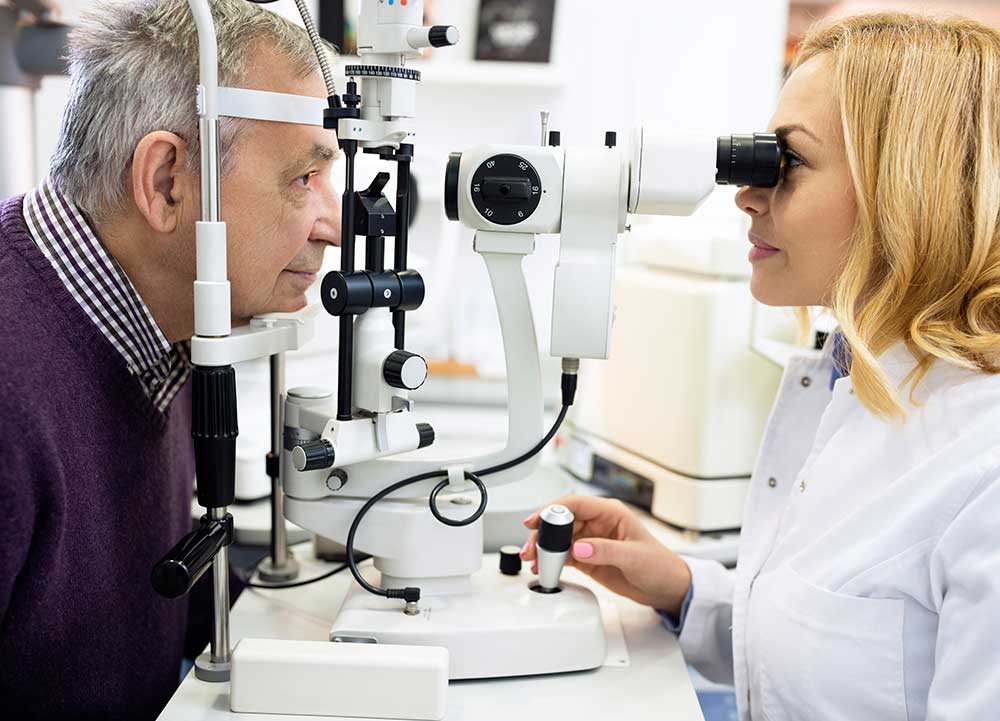Experience Personalized Care with Opticore Optometry in Chino
Experience Personalized Care with Opticore Optometry in Chino
Blog Article
Understanding the Comprehensive Duty of an Optometrist in Modern Eye Treatment
With advancements in technology and a raising focus on precautionary treatment, eye doctors are important in identifying and managing chronic eye problems, while additionally engaging in very early disease discovery. Just how do these obligations intersect with their duty in promoting general eye health and wellness, and what does this mean for person results in a collective health care environment?
Expanded Range of Practice
Recently, the function of optometrists has actually developed significantly, with many experts currently embracing an increased range of practice that expands beyond typical eye exams. This development mirrors the expanding recognition of optometrists as main medical care suppliers in the field of eye care. Their obligations currently encompass a vast array of services, consisting of prescribing medicines for eye conditions, managing persistent eye conditions, and performing small surgeries. This shift has been driven by developments in optometric education, boosted professional training, and the enhancing demand for extensive eye treatment solutions, especially in underserved areas.
Additionally, optometrists are now much more associated with joint care, working very closely with eye doctors, key care doctors, and other healthcare professionals to make certain holistic person care. This interprofessional partnership is critical in handling complicated cases that need a multidisciplinary strategy. Additionally, optometrists are playing a critical duty in public health campaigns, such as vision screenings and eye wellness education, targeted at improving neighborhood health outcomes.
The broadened extent of technique for eye doctors not just enhances their capacity to give detailed treatment but additionally resolves the growing demand for obtainable and effective eye care solutions, adding to overall healthcare enhancements.
Very Early Condition Detection
Early detection of eye diseases is increasingly coming to be a centerpiece in the expanded role of eye doctors. As key eye care providers, optometrists are distinctively placed to recognize very early indications of eye problems such as glaucoma, macular degeneration, diabetic person retinopathy, and cataracts. This critical function is important, as early diagnosis can considerably improve the management and prognosis of these problems, potentially stopping vision loss and boosting patient outcomes.
Optometrists utilize detailed eye evaluations to find subtle changes in vision and eye wellness. These assessments frequently consist of analyses of visual acuity, intraocular pressure, and retinal health. The capability to recognize very early signs of systemic health issues, such as hypertension and diabetic issues, via eye indicators even more underscores the relevance of normal eye exams. Early intervention is not only helpful in preserving vision yet also in reducing healthcare costs related to sophisticated condition treatments.
Additionally, eye doctors play a crucial function in patient education, stressing the significance of regular eye examinations as part of general health care. By cultivating a proactive strategy to eye care, eye doctors add considerably to public health and wellness, making certain illness are caught and handled efficiently prior to they can progress.
Advanced Diagnostic Methods
Advanced analysis methods have actually changed the method of optometry, enabling practitioners to detect and keep an eye on ocular conditions with unmatched precision. Technologies such as optical comprehensibility tomography (OCT) supply high-resolution, cross-sectional images of the retina, assisting in early detection of conditions like glaucoma and macular degeneration.
One more critical advancement is electronic retinal imaging, which captures detailed sights of the retina making use of high-def video cameras. This modern technology is essential in recognizing adjustments in retinal structure over time, thus helping in the management of problems like diabetic person retinopathy. Visual field screening, boosted by computer-aided systems, permits precise mapping of a patient's field of view, crucial in tracking and diagnosing glaucoma progression.
Corneal topography, one more significant diagnostic device, generates thorough maps of the cornea's surface area. This is specifically valuable in suitable contact lenses and planning refractive surgical treatment. These innovative diagnostic techniques jointly enable optometrists to supply aggressive, targeted care, making certain better person results and reinforcing their essential duty in eye wellness administration.
Managing Persistent Eye Conditions
Managing persistent eye problems is a cornerstone of optometric treatment that calls for a comprehensive understanding of different ocular conditions and their long-term effects. Optometrists play a critical duty in surveillance, managing, and diagnosing conditions such as glaucoma, diabetic retinopathy, and age-related macular deterioration. These problems, if left without treatment, can cause significant visual disability or blindness, highlighting the crucial relevance of ongoing treatment and management.
Optometrists utilize a variety of analysis tools, consisting of optical coherence tomography (OCT), aesthetic field screening, and fundus digital photography, to assess the progression of these persistent conditions. By very closely keeping track of modifications in eye health and wellness, optometrists can adjust treatment plans to minimize disease progression. This might entail recommending medicines, advising lifestyle modifications, or collaborating with eye doctors for medical interventions when necessary.

Role in Preventive Care
Preventive treatment is a basic element of optometry that concentrates on maintaining eye health and wellness and preventing the onset of eye diseases. Eye doctors play an important function in early discovery and prevention, employing normal eye assessments to determine danger aspects and subtle modifications in eye health and wellness. Optometrist Chino. These assessments are not merely concerning vision improvement yet include a thorough assessment of eye functions and Homepage structures, making it possible for the identification of conditions such as glaucoma, cataracts, and macular degeneration at a very early stage
Along with diagnostics, eye doctors inform clients on way of life selections that advertise eye health and wellness, such as proper nourishment, UV security, and the importance of normal eye exams. They suggest on the proper usage of electronic gadgets to avoid electronic eye pressure, a growing worry in the electronic age. Optometrists likewise give advice on safety eyeglasses for occupational and entertainment activities, mitigating the danger of injury.
Preventive eye treatment reaches systemic health issues that show up in the eyes, such as diabetic issues and hypertension. By teaming up with various other medical care specialists, eye doctors contribute to all natural person care, stressing the interconnectedness of systemic and eye health. This proactive strategy is necessary in safeguarding aesthetic acuity and overall well-being.
Final Thought
Optometrists now occupy a crucial role in modern eye care, defined by a broadened extent that includes detecting and managing persistent eye conditions, recommending medicines, and carrying out small operations (Eye Doctor Optometrist). Their proficiency in early illness detection is improved by sophisticated diagnostic strategies such as optical coherence tomography and electronic retinal imaging. By stressing preventive treatment and patient education, eye doctors add significantly to total eye wellness, working together with other medical care professionals to ensure comprehensive and efficient client results

In enhancement to diagnostics, eye doctors educate individuals on lifestyle Opticore Optometry selections that advertise eye wellness, such as proper nourishment, UV protection, and the significance of routine eye examinations.Preventive eye treatment extends to systemic wellness problems that show up in the eyes, such as diabetes mellitus and high blood pressure.Optometrists currently occupy a critical role in modern-day eye treatment, characterized by a broadened scope that includes diagnosing and managing persistent eye conditions, suggesting medications, and carrying out minor surgical procedures.
Report this page